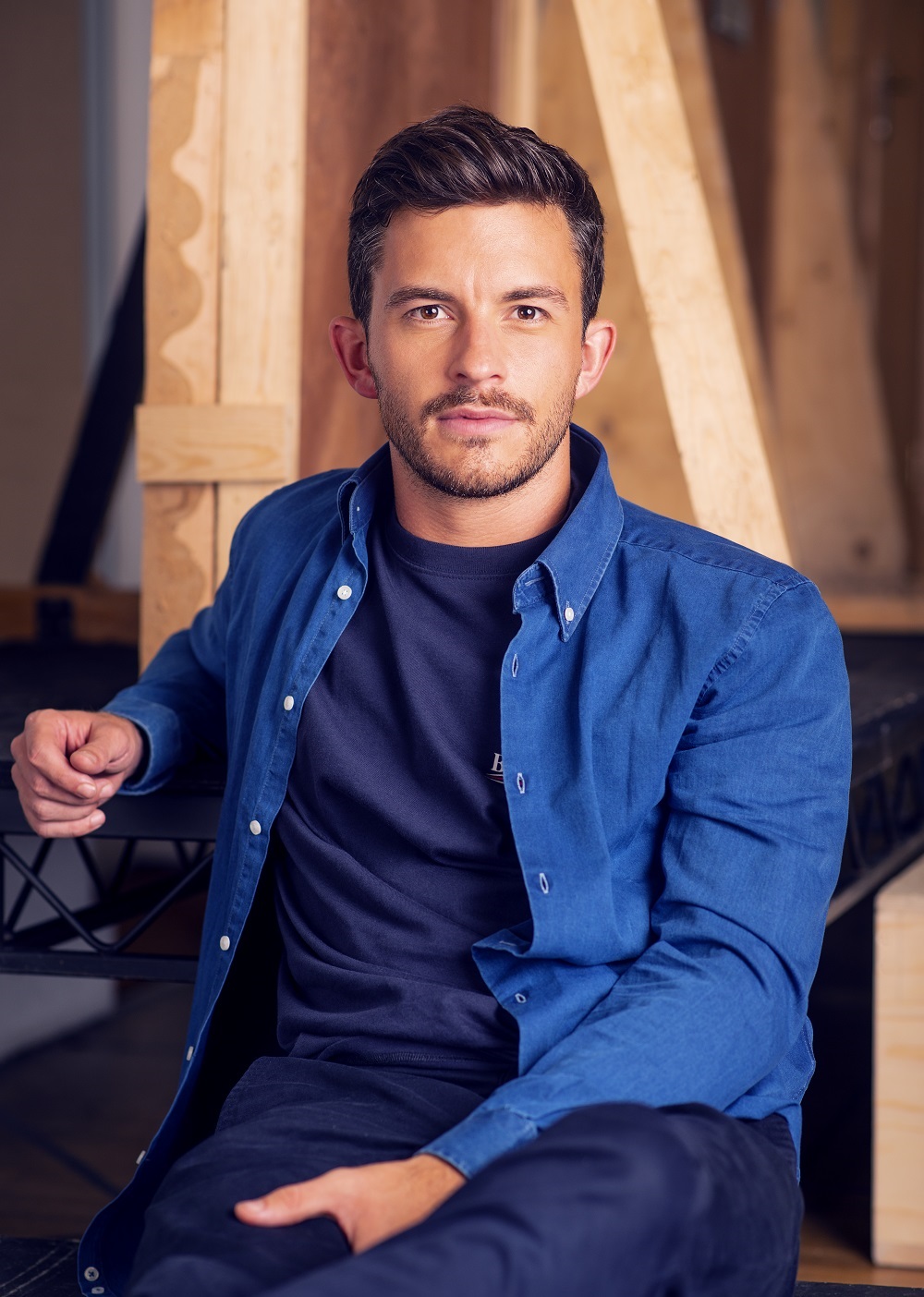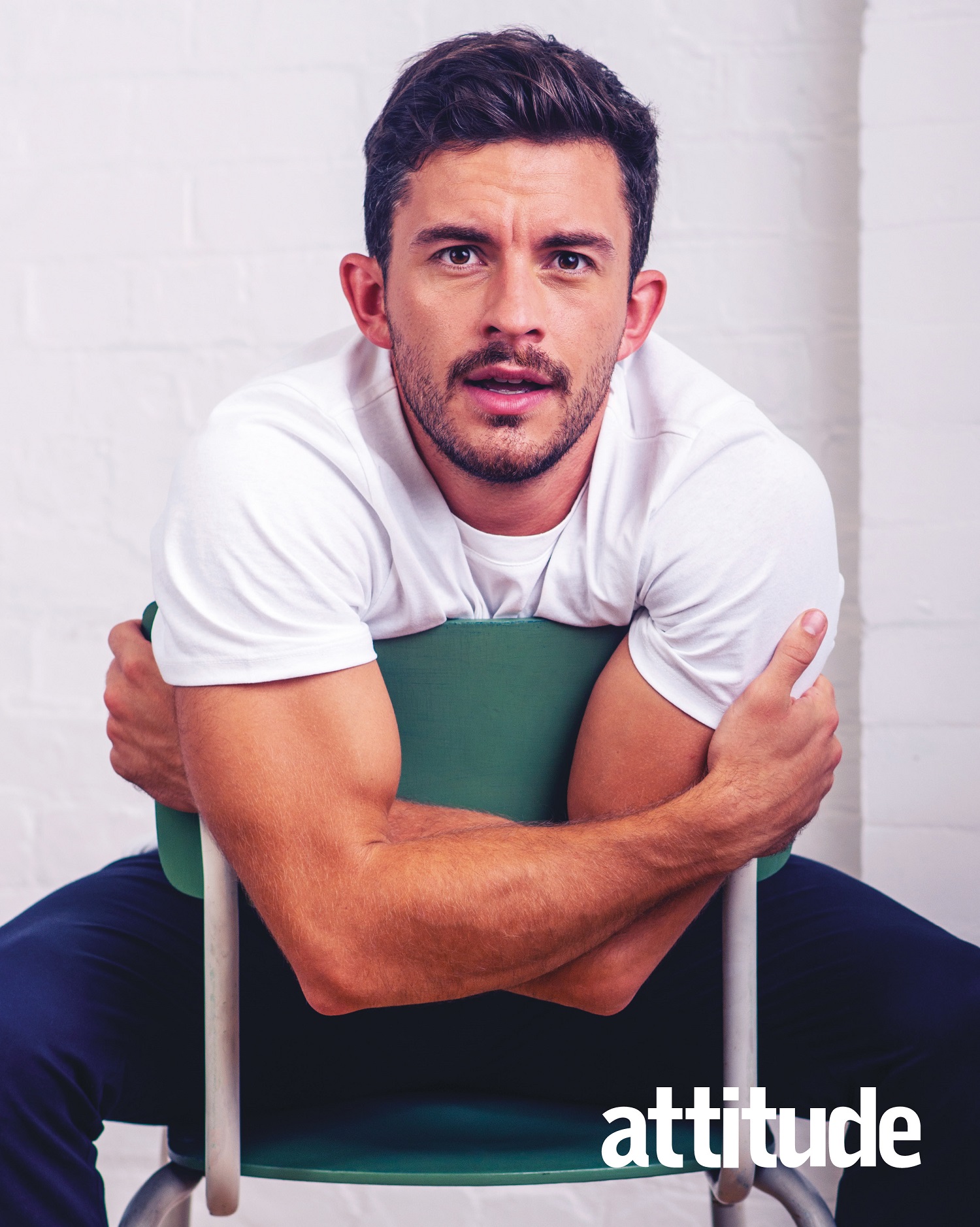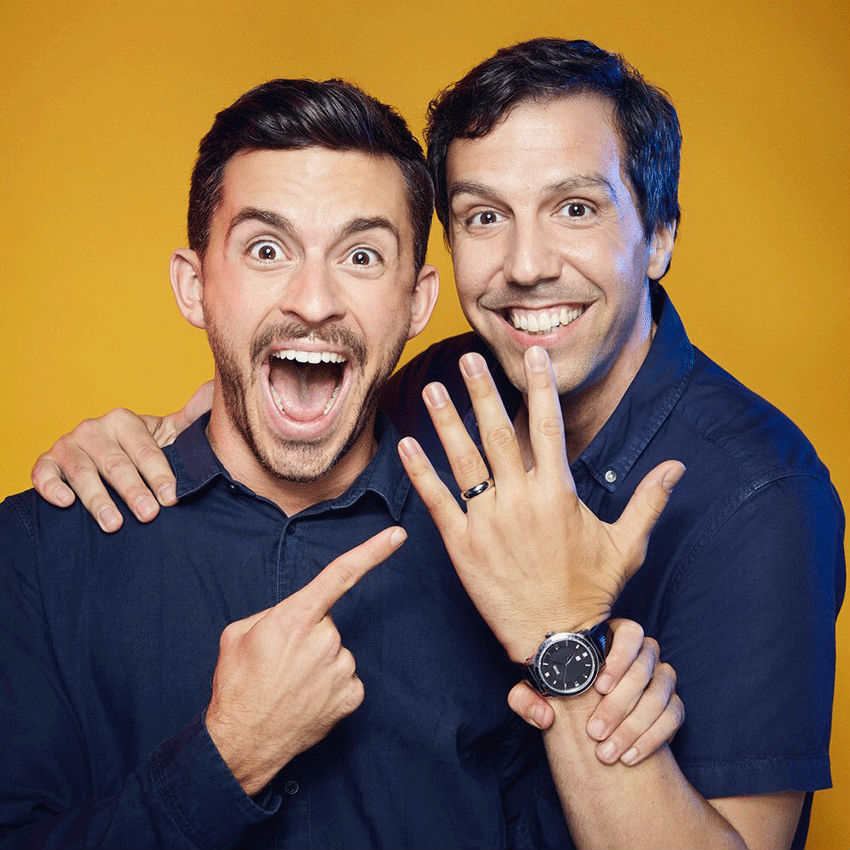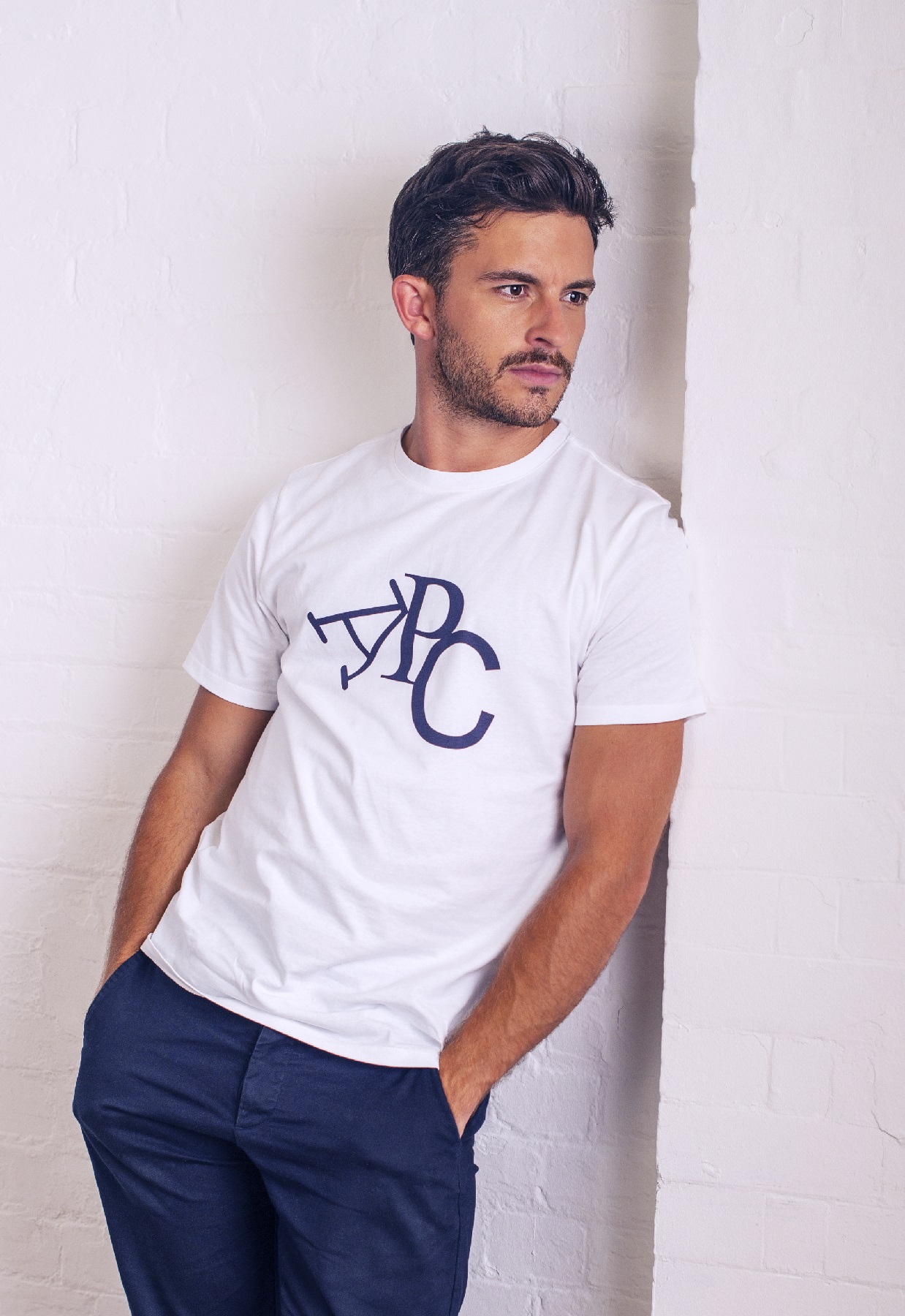‘Company’ star Jonny Bailey on marriage, monogamy, and tackling LGBT youth homelessness
The hit West End production of 'Company' will hold a special benefit performance for the Albert Kennedy Trust next month.
By Will Stroude

Words: Will Stroude
As a gay man having doubts about his impending wedding in the West End revival of Stephen Sondheim’s Company, Jonny Bailey has already been scoring one for LGBT representation in a role that was original written for a straight women – but the former Broadchurch star is also set to help his community on a more practical level in the coming weeks.
The Oxfordshire-born actor, 30, will join his Company co-stars on stage next month (12 February) for a special benefit performance to raise money for the Albert Kennedy Trust (AKT), the UK LGBT youth homelessness charity.
For Jonny, who also serves as an ambassador for AKT, starring in Company in possibly the most high-profile gay role of his career to date has given him the chance to reflect on his place a community where rapid strides in legal equality and representation have masked underlying prejudices that mean an estimated one in four young people experiencing homelessness in the UK identies as LGBT.

Photography: Markus Bidaux
With March set to mark half a decade since the legalisation of same-sex marriage in England and Wales, a generation of gay men who grew up never imagining they might say ‘I do’ are having to adjust to changing societal expections, while young people still battle simply to be accepted by their friends and families – and 30-year-old Jonny finds himself right in the middle of the generational divide…
It’s great to see a big West End show like Company supporting the community in this way. How did this gala night for the Albert Kennedy Trust come into fruition?
I think, what, six years ago, my first ever Pride I marched in, my friend said ‘I can totally get you on this float, you’ll have to wear a t-shirt’. I was like ‘Okay, cool!’, ran down, and it was the Albert Kennedy Trust. I obviously met a load of people I now know quite well, and so the moment I took this job I met with Tim Sigsworth, the CEO of the Albert Kennedy Trust, and it was a no-brainer. I spoke to our brilliant producer Chris Harper and within 24 hours he’d agreed to set up a benefit evening with 150 tickets – 50 of which are completely free to people who’ve been supported through the Albert Kennedy Trust. It’s brilliant, not just for the obvious [reason], which is raising money for the Albert Kennedy Trust, but because we get to perform for people who otherwise wouldn’t get to come and see the show.
Clearly this is a cause that’s close to your heart – have you met any of the LGBT young people who are currently dealing with homelessness?
Yeah I have. I don’t know how much I can talk about their stories, but AKT’s outreach is huge and they’ve got an amazing mentoring scheme as well. I think from my upbringing, I wasn’t exposed to any role models in popular culture or in my day to day life, so the idea that there’s a safe conversation that can be had with you by someone with experience is really important – because it can [still] be an incredible dangerous place to be. Where the queer narrative is changing in certain pockets in the UK, it’s not necessarily shifted the same way internationally or in different areas of regional Britain. There are still people who don’t feel safe in their own home because they’ve had a first real conversation about who they are. We all know the gay world brings certain challenges. This one guy came out and his parents made it clear he wasn’t welcome in their house – he moved to London, ended up going to a chill party where he was encouraged to take drugs and was infected [with HIV]. That’s a life-changing trauma on multiple levels, and the idea that that’s still happening… The Albert Kennedy Trust will never let someone go homeless for that one night, and all it takes is a phone call.
Has working with AKT ever made you reflect on your own upbringing, how things could have turned out differently?
Yeah, I’m very grateful that I’m where I’m at now. Even though there’s a common understanding [between gay people], no one person has experienced the same thing. I do look back now and realise how hard it is, and how hard it was. At the time I always felt I was lucky that I was surrounded by people that loved me and did accept me – through multiple conversations of course – but the idea that you’re ‘lucky’ because of that… It’s a right to be supported.

Photography: Markus Bidaux
Did you struggle with feelings of isolation at that age?
I mean, I was a ballet dancer at 11, and I was acting, so I don’t know… I was also very open with myself and at various points with my friends, so it was more that I felt I wasn’t enriched at that age – there wasn’t anything to affirm [my identity]. I was very curious and open, and that comes from having quite a supportive friendship group and family, but it would have been very different had I been someone who was openly gay, I imagine. But that’s why the Albert Kennedy Trust is so important – a lot of the access points to young LGBT people are severed through fear, and it’s like having a guardian angel and someone’s only a phone call away. I think that’s fantastic.
You’ve played quite a few gay roles recently, in both Company and The York Realist. What are you looking for when it comes to a gay story you want to be a part of telling?
To humanise the queer experience. And by that I don’t mean ‘Ooh, it’s just two people in love!’. For me, the interesting characters are those who are politically on the brink, and that for me is queer culture. The queer experience changes every few years and I’m excited to see how the next generation see themselves. The fact people are out at schools now is fantastic, [but it’s] so bizarre to me. I’m only 30 but I grew up with storylines on Casualty where gay men were dying of Aids, and even mainstream comedies into the noughties – things like Catherine Tate’s comedies – I just remember watching it with my family and that was a constant reminder that it was ‘other’ and it was either ‘hilarious’ or something not to be dealt with empathetically or sensitively. It’s really interesting now to see things like Sex Education on Netflix: I’ve been watching that and I think it’s fucking amazing. It’s a revolutionary time. The thing about Company that’s quietly revolutionary is the fact that because it’s been gender-swapped and retrofitted there’s no reference to Jamie and Paul’s sexuality at all by the other characters on stage. I know that’s what audiences are responding really well to, and it’s so liberating to perform that on stage; I come off buzzing. It’s a real tragic story for Jamie and Paul I think, but the tragedy isn’t their sexuality it’s their inability to function in a relationship, and – I think – within the context of now being allowed to marry.

Jonny as Jamie in ‘Company’, with co-star Alex Gaumond, who plays Jamie’s fiancé Paul
Has taking on this role made to evaluate your own attitude to marriage? Is it something you ‘aspire’ to?
It would be foolish to think it wasn’t something I’d always headed towards. Doing this production has been unbelievable in terms of how it’s made me see myself and what I want. I 100% believe in a long-term committed monogamous relationship, that’s completely my world view. Having a family is something I’ve never wavered on. I think I was always inquisitive about open relationships and how that works, but I think I know that I would want a long-term committed relationship. I would totally marry someone if they wanted to marry me.
I mean that tends to be the tricky part…
[laughs] No, I mean if they had a value on marriage as well. If they were like ‘I want to stay with you but we don’t need to get married’, that’s absolutely fine, I wouldn’t prioritise it. I wouldn’t need the validation of a marriage to feel secure in a relationship – but having said that, it’s probably something I’d love to do, yeah.

Photography: Markus Bidaux
Issues like marriage, monogamy and open relationships remain incredibly divisive within the community; people get incredibly fired up.
Yeah I find it fucking fascinating. I totally understand it. I also understand that relationships are changing for straight people [too], with polysexual people or however you identify, and that’s okay too. People view sex in different ways and it’s great that we’re exploring sexuality finally. People can love sex and see it as a sport, or they can see it as a divine sanctity between two people, and that’s to be celebrated. I don’t think one person can threaten another by their choices. But I’ve spoken to older men in their 40s and when I say I’d like a monogamous relationship they say ‘Oh you say that now!’ [chuckles] All I know is how I feel. I don’t know what would happen if I met someone who didn’t believe in monogamy; I don’t know how that would play out…
The reaction to Company’s gender-swap with your character Jamie has been universally praised – but it’s hard not to contrast that with the by no means universally positive reaction to Hermione being played by a black actress in the West End’s Harry Potter and the Cursed Child.
I think the thing about [that] which was really fucking amazing was when JK Rowling turned around and said ‘I never talked about her race’. It said she had ‘bushy brown hair’. But that [reaction] was more about how people perceived a beloved character, whereas Amy and Jamie is completely different – we’re not inviting anyone to see the same character reinvented. But I do think it proves that brilliant art will always survive in a reincarnated form. It’s challenged people to see that there are no rules in theatre. When there’s brilliant material, there’ll always be visionaries who come along and do something new with it.
Now, I wouldn’t be a self-respecting gay journalist if I didn’t ask what it’s been like working with the legendary Patti Lupone…
She’s amazing! She’s a really good pal. She’s so generous and kind and she grafts… and her fashion is on point! She’s someone who’s had to find her voice, and she says it – she’s say ‘I wasn’t born a fighter but I had to learn to fight’. I think that’s what’s interesting about the public perception of someone versus their true identity. But she’s an incredible woman and an amazing Company member. I mean, she picks up her own chairs and tables in one of the numbers and does ensemble choreography. She’s mega.
I hope no audience members’ phones have gone off mid-performance – because we know that you’re in danger if Patti’s on stage.
[laughs] There have been a couple of moments where sphincter’s have tightened on stage – but so far the British theatre-going public have been saved…
For tickets for Company’s Albert Kennedy Trust benefit performance on 12 February click here.
